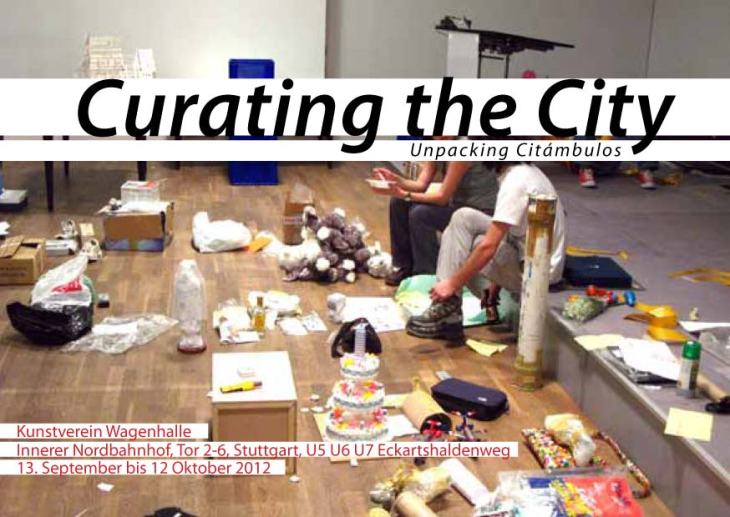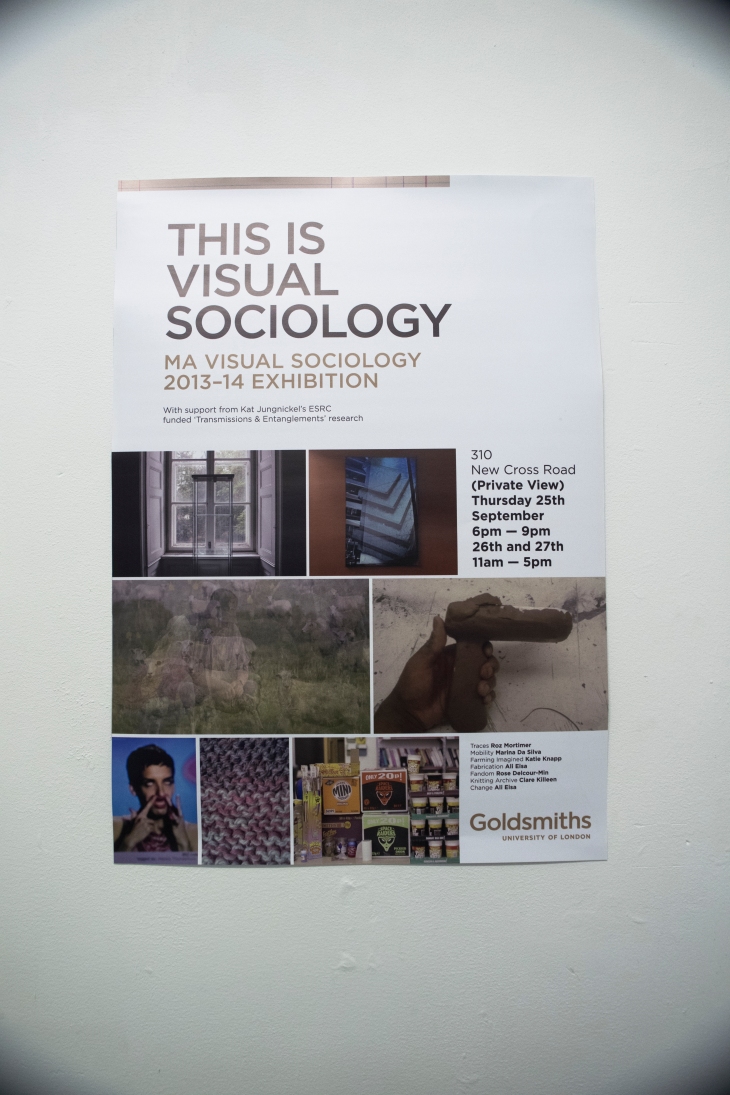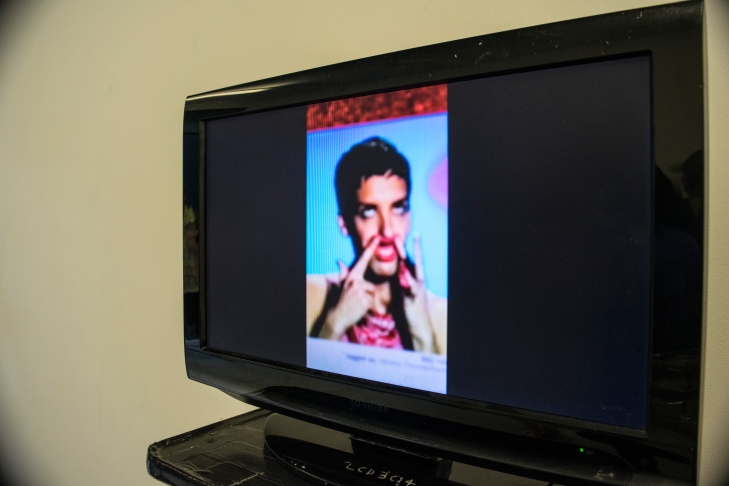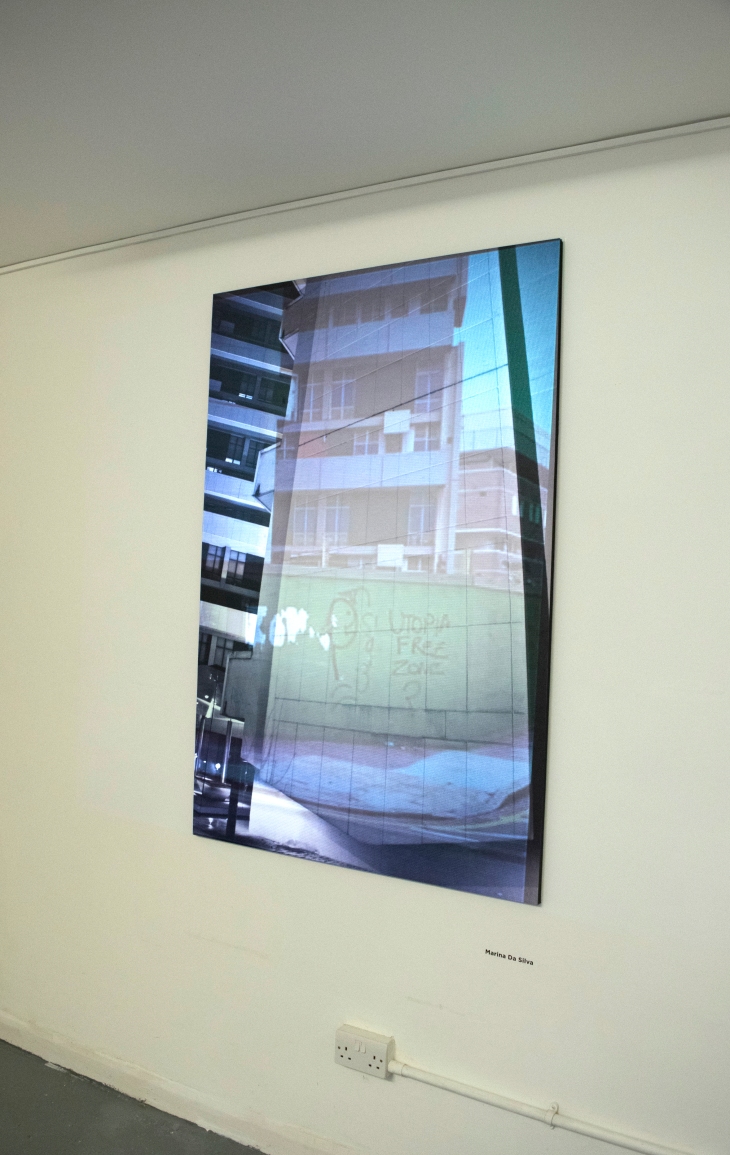Working in the emerging fields of Visual and Sensory Sociology implies searching for ways by which visual and sensory research tools and findings can make an intervention in the production of public knowledge. This is, that the visual and sensory means applied during research become productive not just as inspiration, companion or appendix to the written piece, but productive in their own right and speaking their own language. Visual and sensory knowledge – or more generally speaking: creative knowledge – are specific ways of knowing, different to that of intellectual abstraction to which they tend to resist when caught and translated into textual description and interpretation. It is in this light that the practice of curating acquires heightened importance. Curating Research is about handling research (Bolt 2010). It is about listening to and bringing into relation the visual and material qualities inherent in those forms of research that draw on, or develop through, artistic practices. And it is about exploring “curating as a research process” (Wells 2007) that in itself allows sociological enquiry – in all its possible forms, visual-sensory or not – to re-imagine, re-arrange, experiment with and expand its methods and ways of communication (see Puwar and Sharma, “Curating Sociology”, forthcoming).
Thus, if Visual and Sensory Sociology claim to be able to find distinctive approaches into researching the social, they have to find ways how to recognize, maintain and make flourish the uniqueness of such visual-material (creative) knowledge when introducing it into the ‘conventional’ channels of knowledge production in the social sciences. Curating Research shows the potential to be such a way. The medium ‘exhibition’, as a space, way of doing and a set of tools for research, can expand our means by which to challenge the material and sensory relations of the social. And it can help us to engage with publics inside and outside academia by using “other ways of telling” (ibid.).
Curating the city and Curating Research are two interventions that aim at contributing to find such ways. The first being an exhibition about the making of an exhibition and the second being a public talk about the art of exhibition making, both events invite to discuss the possible tools and spaces offered by curatorial practices in order to access, present, put to work and challenge creative research and knowledge.
please have a look and join the discussion.

Curating Research aims at exploring curatorial praxis as the means and stage for artistic research in the social sciences. The public talk asks about the politics and ethics of exhibiting as well as about the possibilities provided by the communication medium ‘exhibition’ to open up new, or different, spaces for thought and action.
As a reference point for the discussion we will draw special – yet not exclusive –attention to the tools and techniques inherent to curatorial practices in the field of critical urban studies. What possibilities emerge through the medium ‘exhibition’ for investigating, thinking, and changing the city?
Curating Research is an initiative by the urban research collective Citámbulos, the architecture collective NMA and Akademie Schloss Solitude. It takes the exhibition Curating the City – an exhibition about curating an exhibition about Mexico City – as an opportunity and spacial-haptic starting point for the discussion.
The public event invites curators, exhibition visitors, social scientists, and all those, who use artistic resources for their research, to reflect on their curatorial tools. It aims at exploring ways in which exhibitions and artistic knowledge production can become methodically firm and critically productive means for intervening in society.

Curating the City addresses the question of how curatorial practice and exhibition space can operate as active thinking spaces within urban research. The exhibition is designed as an open archive and workshop conversation with the interdisciplinary urban research collective Citámbulos whose homonymous project on urban phenomena in Mexico City has been shown in Berlin, Mexico City and Copenhagen (among others) in recent years. By means of a dialogue between specific exhibition pieces, excerpts from the publication Citámbulos: Guide to the Marvels of Mexico City and the collective’s Manifesto, Curating the City invites reflecting on ‘the art of listening’, ‘imagination as method’ and ‘remarking the unremarkable’ of our cities.









